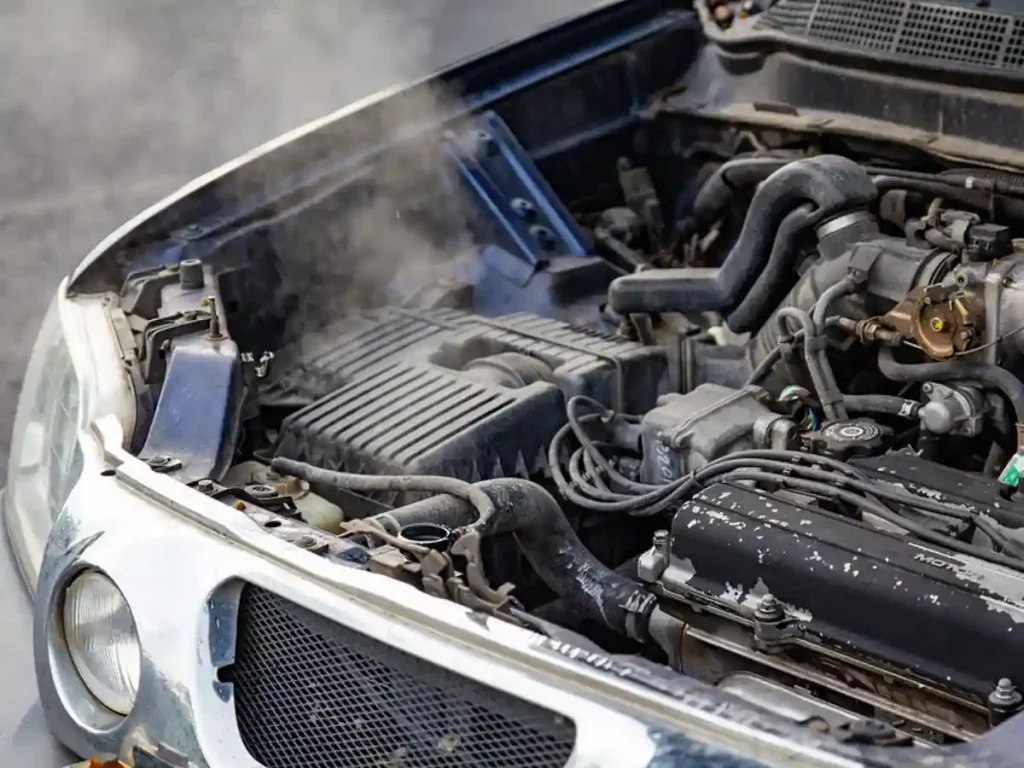
A starter motor is an essential component of an internal combustion engine and is responsible for turning the engine over, which helps to start the vehicle. This component is made up of several different parts, including the solenoid, the starter motor, and the gears. If any of these parts become damaged or wear out, the starter motor will not be able to perform its job, and the vehicle will not start
There are several signs that indicate a failing starter motor, and it is important to be aware of these signs in order to avoid further damage to the vehicle and to ensure that it starts when you need it to.
In this blog, we will discuss some of the common signs of a failing starter motor, so that you can be prepared to have it fixed if necessary.
6 Signs of Failing Motor
Here we go:
1. Grinding or Clicking Noise:
One of the most common signs of a failing starter motor is a grinding or clicking sound when the key is turned. This sound occurs when the starter motor gears are worn or damaged and are unable to engage with the flywheel correctly. This can result in the gears slipping or failing to turn the engine over, and it is a sure sign that the starter motor is in need of repair or replacement.
2. Slow Cranking
Another common sign of a failing starter motor is a slow or delayed engine crank. If you turn the key, and there is a delay before the engine starts to turn over, this is a sign that the starter motor is not providing enough power to get the engine moving.
3. Whining & Squealing Noise
A third sign of a failing starter motor is a high-pitched whining or squealing sound when the key is turned. This sound is caused by a lack of lubrication within the starter motor and is a sign that the gears are wearing down and in need of replacement. This sound is often accompanied by a grinding or clicking noise, which further indicates that the starter motor is failing.
4. Smoke or Burning Smell:

A fourth sign of a failing starter motor is a burning or smoky smell when the key is turned. This smell is a sign that the starter motor is overheating and may be due to a damaged solenoid or other electrical components. If you notice this smell, it is important to have your vehicle inspected by a mechanic as soon as possible, as continued use of the starter motor in this state can cause further damage to the engine and other components.
5. Fused Solenoid Or Dead Battery
Finally, a fifth sign of a failing starter motor is a dead battery or engine that will not start. If you turn the key, and there is no response, this may be a sign that the starter motor is not functioning properly. This can be due to a variety of factors, including a weak battery, a damaged solenoid, or worn gears within the starter motor.
6. Intermittent Starting
If your engine starts sometimes and not others, it could be a sign of a failing starter motor. This issue is usually caused by worn brushes inside the starter motor, which can prevent it from making good contact with the commutator.
Conclusion
In conclusion, a failing starter motor can cause a variety of problems for your vehicle, and it is important to be aware of the signs in order to ensure that it starts when you need it to.
Ignoring the warning signs of a failing starter motor can lead to costly repairs and potential breakdowns. If you notice any of these signs, it is important to have your vehicle inspected by a mechanic as soon as possible, in order to prevent further damage.
